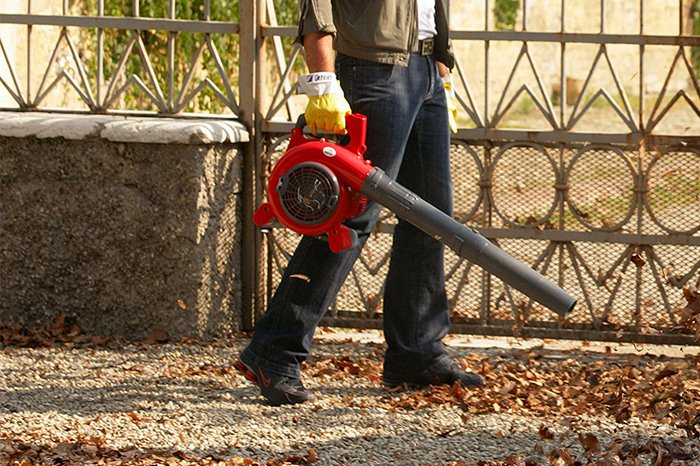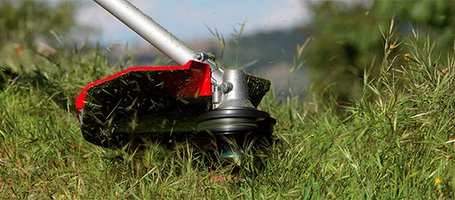How often does it occur that after using the blower you're tempted to simply stow it away without spending a moments cleaning it?
In fact, if the blower fails to start, checking that the machine components are clean is the second step to perform – at least in the case of petrol-engine blowers – after having made sure it's not out of fuel.
So instead of taking corrective action, why not adopt a preventive approach? Together with maintenance operations in fact, the clean condition of the blower is essential, in order to work with a machine that is always efficient and provides the maximum working life. This article discuses blower cleaning operations: let's go.
To clean the blower, start with the air filter
Cleaning of the blower starts by inspecting the air filter, which is one of the main components of petrol-engine blowers, such as the Efco SA 3000 hand-held blower or backpack blower models SA 2062 and SA 9000.
To clean the blower air filter after using the tool or anyway every 10 working hours:
- Remove the filter cover casing and clean the inside.
- Remove the filter and clean it by tapping it on a solid surface.
- If necessary, use a brush to clean between the filter fins by brushing lengthwise.
- Alternatively you can use compressed air, blowing at a distance from the rear towards the exterior, working in the lengthwise direction.
- Clean also the edges of the filter.
- Refit the filter and re-close the cover.
Why clean the air filter? A clogged air filter results in an excessively rich fuel-air mixture, which produces a high volume of combustion residues that are then deposited in the engine.
Replace the filter if it is damaged or fouled with fuel; anyway, the filter should be changed every 6 months. If the blower is subject to intensive use, the air filter should be replaced more frequently.
Fuel filter
We recommend changing the fuel filter at 6-monthly intervals or at least once a year (every 3-4 months for intensive use of the blower). The fuel filter should be replaced by an authorised service centre: Efco distributors and service centres guarantee specialised technical service for rapid replacements with exclusively genuine original parts.
Clean the engine air vents, cylinder cooling fins, and spark plug
After cleaning the blower air filter, focus on cleaning the area of the carburettor and engine. Here, it is important that the air should flow freely between the cylinder fins to ensure the engine runs at the correct temperature without overheating. Therefore, clean the cylinder cooling fins with compressed air once a week.
Clean the spark plug to remove oil residues with a rag and check the electrode gap (0.5 mm for the spark plugs of Efco petrol-engine blowers). If you need to change the spark plug, consult the use and maintenance manual supplied with your blower to identify the specific spark plug required.
Clean also the engine cover, paying attention to the air vents: an unobstructed air passage is essential in order to ensure correct engine cooling.
Clean the fan protective grille
Careful cleaning of the blower must also consider the engine fan protective grille: in the case of hand-held blowers such as model SA 3000, the grille is on the side of the tool, while on backpack blower models such as the SA 2062 and SA 9000 the grille is located behind the back support cushion.
As for the engine cover air vents, if the openings in the fan grille become clogged with dust, the air flow will be diminished resulting in damage to the fan and overheating of the engine.


Cleaning the battery-powered blower
How should we clean a blower if, rather than a petrol-engine model, we are dealing with a
battery-powered tool such as the Efco SAi 60? Before cleaning your battery-powered blower, like any other maintenance operation, always remove the battery from its housing.
After using the battery-powered blower, in addition to cleaning the air vents as in the case of petrol-engine blowers, use a clean dry cloth (do not use water) to clean the blower and the battery.









